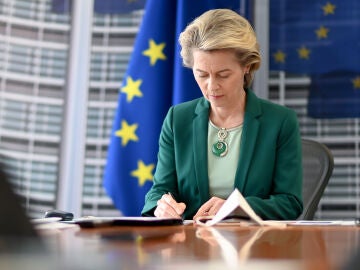
Back to school also takes place in the European institutions. Every year in September, the State of the Union address is held (SOTEU, for the acronym in English of State Of The European Union), marking the beginning of the ‘European school year’ after the summer holidays. Established in 2010, its objective is to make European political life more democratic and transparent than it had been to date. The SOTEU implies a message that the president of the European Commission offered in a plenary session at one of the seats of Parliament, which is followed by what is known as debate on the state of the union.
This intervention takes stock of the achievements to date and presents some of the priorities for the following year. The one from 2023 is the Ursula von der Leyen’s last State of the Union address at the head of the European Commission: next year European elections are heldin June, when the hemicycle of the European Parliament will be renewed.
The speech itself lasts between half an hour and 45 minutes, during which Von der Leyen will speak in English, French and/or German, which are the three working languages in the European Union. Of course, from laSexta.com you can follow it with simultaneous translation into Spanish. The SOTEU is one of the most important events of the European political cycle, in which not only the president of the Commission participatesbut all the MEPs.
From speech to debate on the State of the Union
After the speech, the debate begins, in which the representatives elected by the citizens of the European Union themselves hold the Commission to account and review the work done to date, to ensure that the main concerns of Europeans are addressed. The State of the Union debate is key to evaluating the priorities defined by Von der Leyen in 2022, among which are the European response to the Russia’s war in Ukrainepolicies against climate change, measures to address the increasing cost of livingthe energy crisis and the defense of the rule of law.
He SOTEU 2023 takes place on Wednesday, September 13, starting at 9:00. In addition to Spanish, both the speech and the debate are available in any of the 24 official languages of the European Union, as well as interpretation into international sign language.
Source: Lasexta
Ricardo is a renowned author and journalist, known for his exceptional writing on top-news stories. He currently works as a writer at the 247 News Agency, where he is known for his ability to deliver breaking news and insightful analysis on the most pressing issues of the day.











